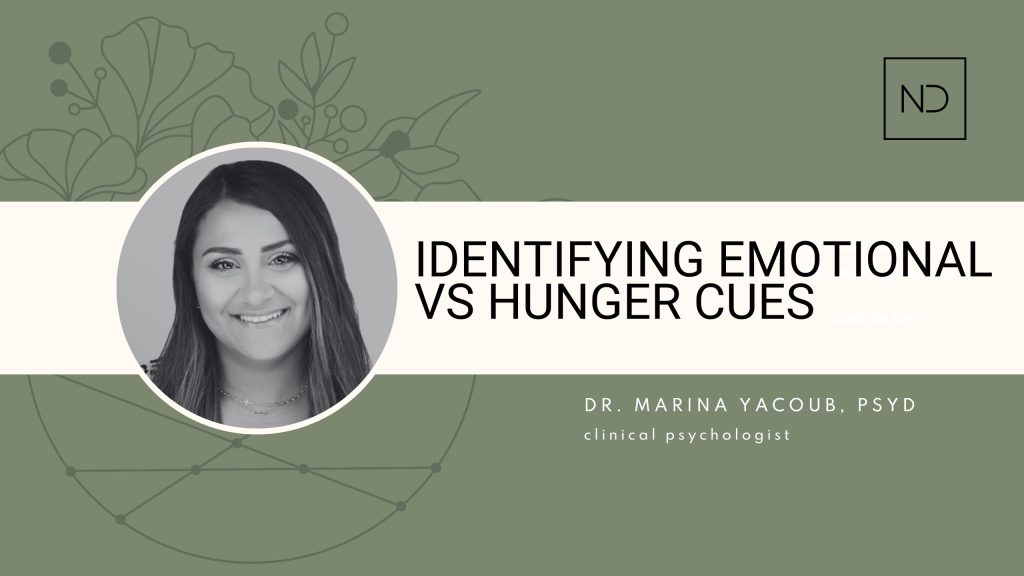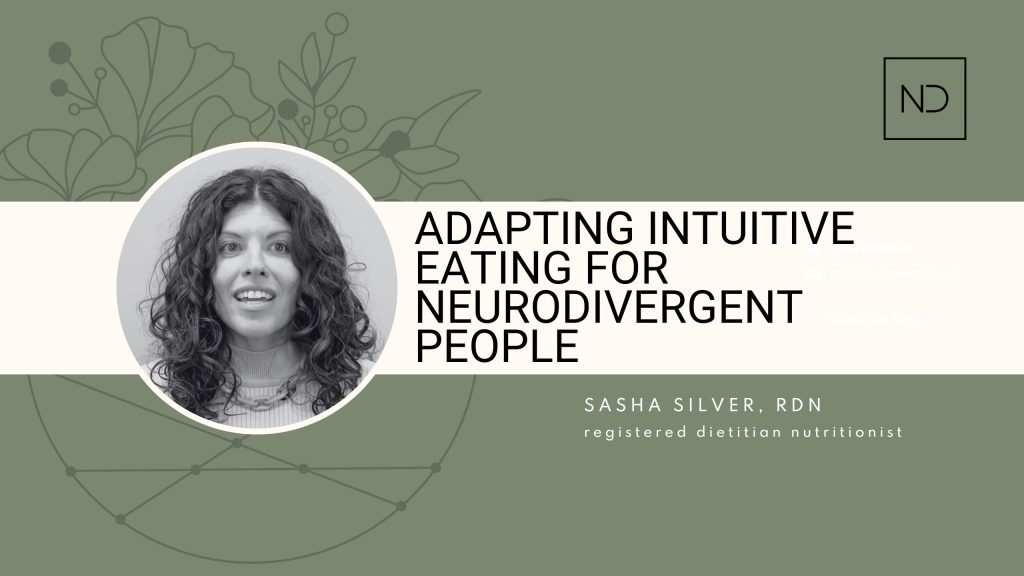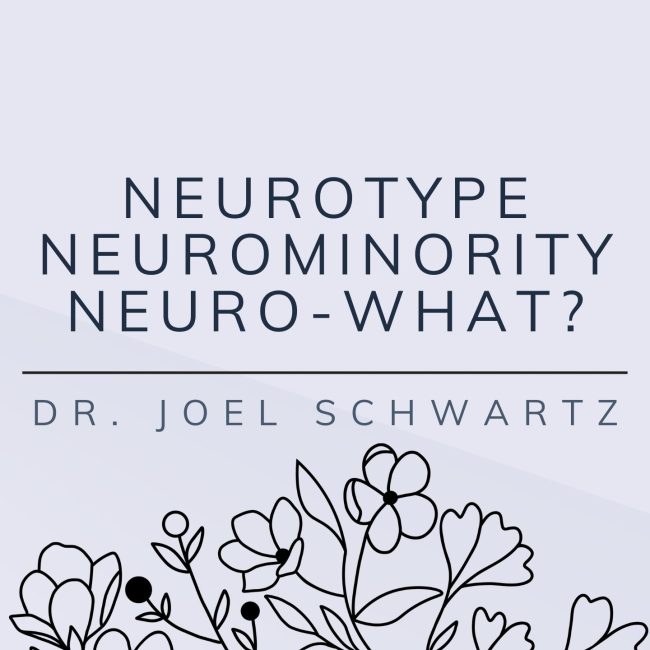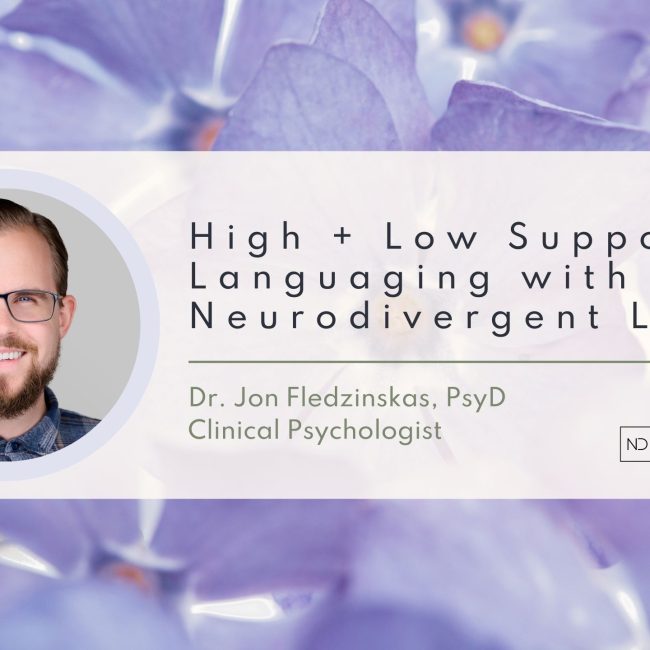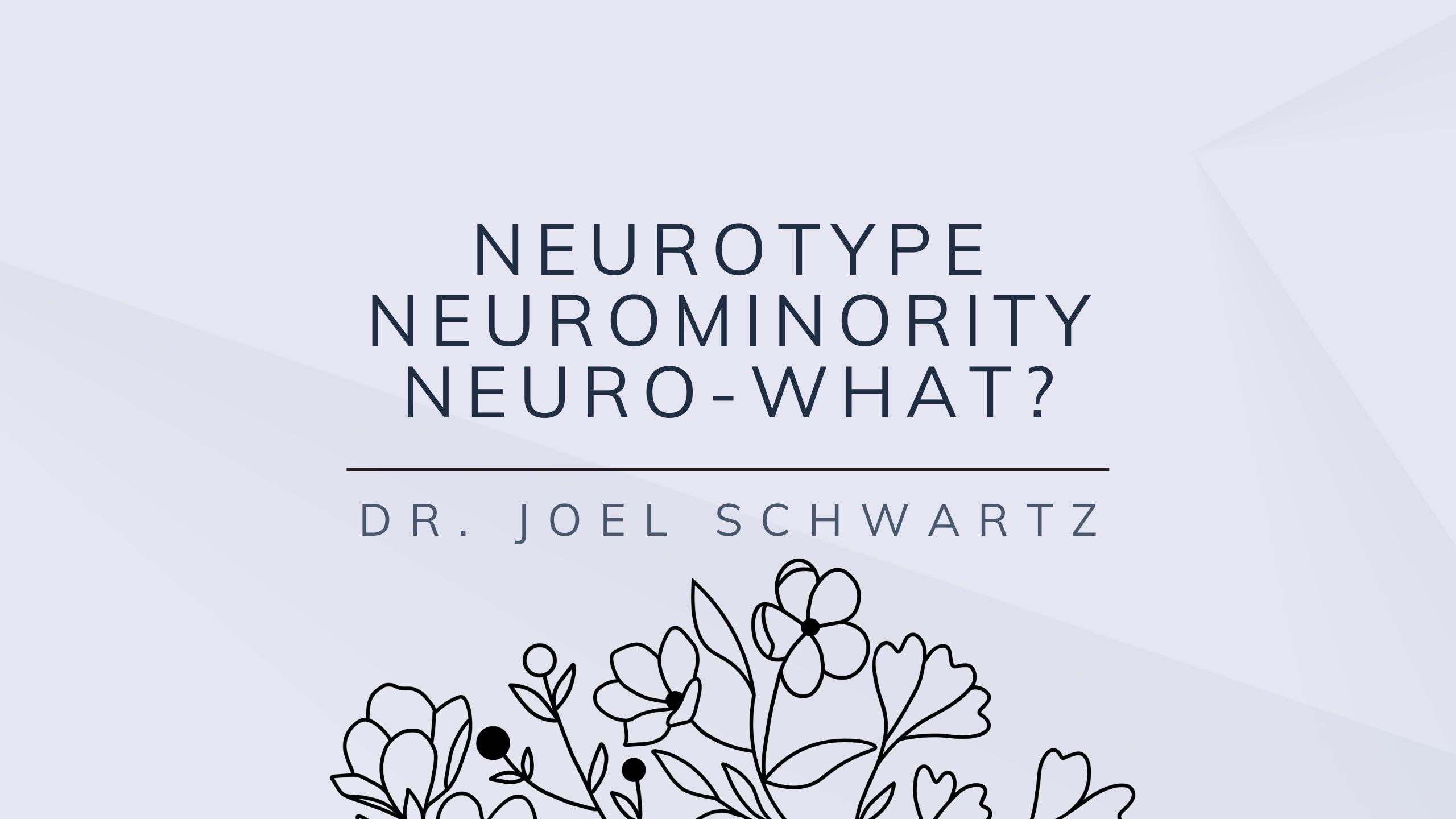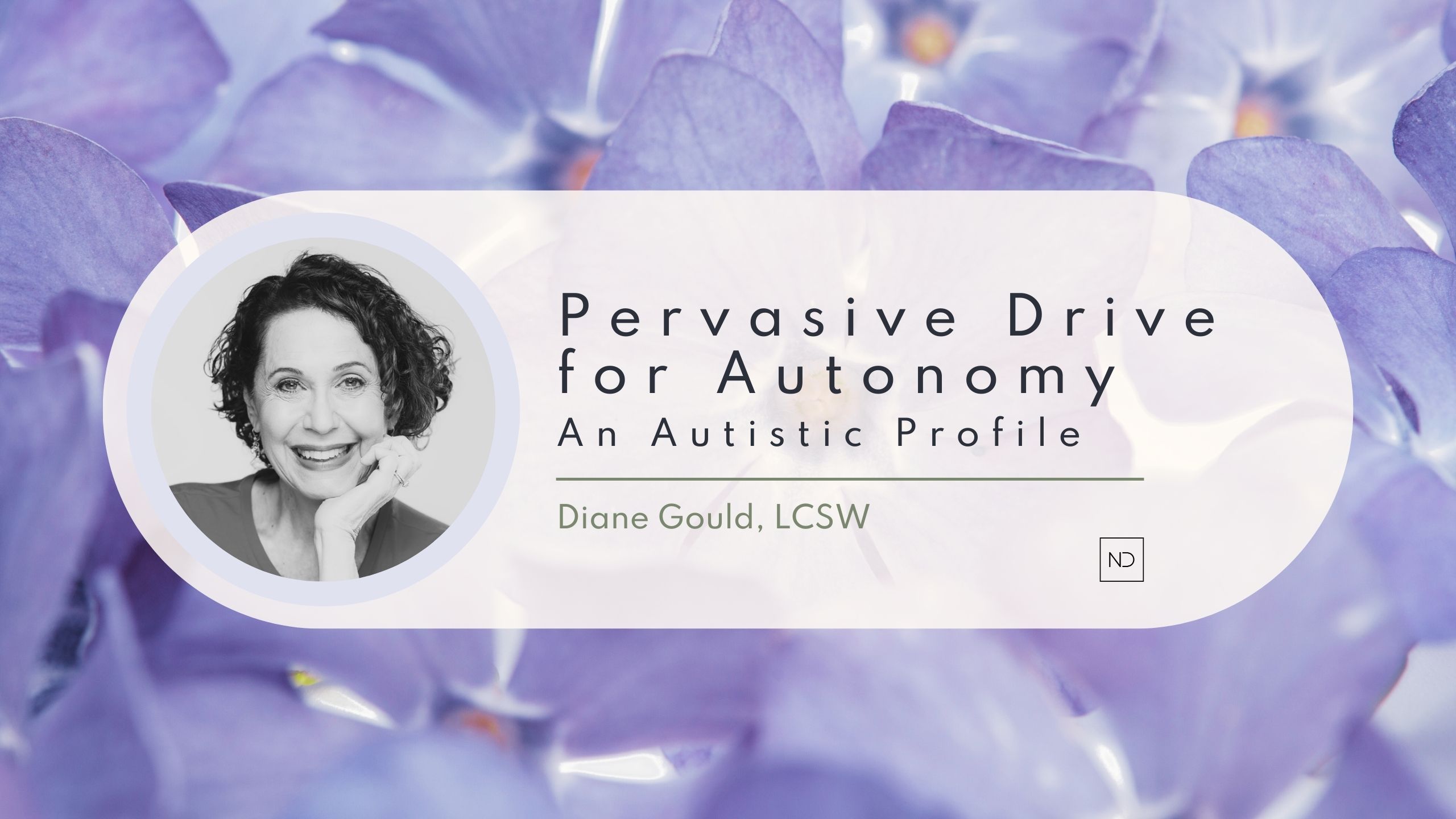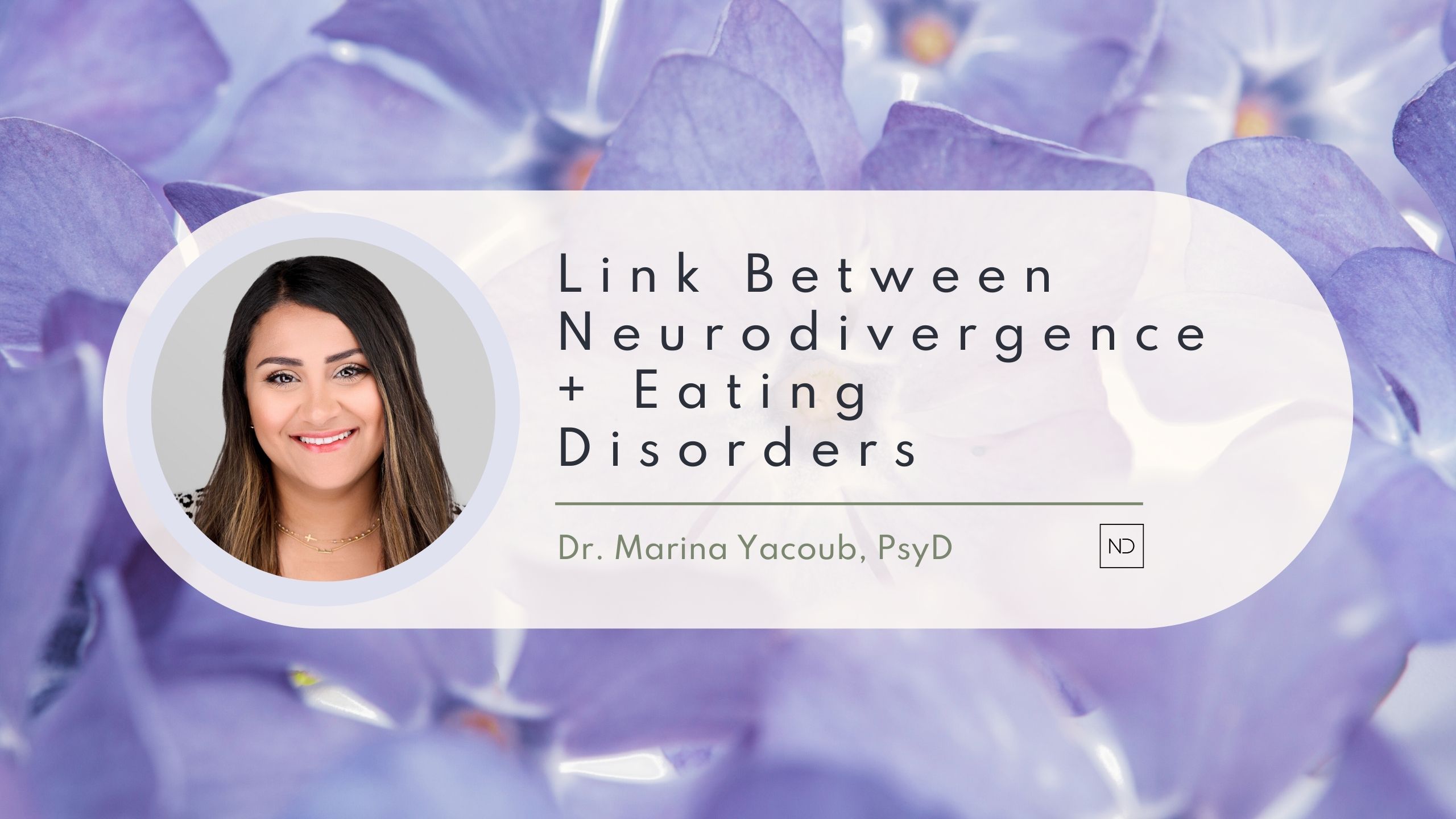
Link Between Neurodivergence + Eating Disorders
Written By: Dr. Marina Yacoub, PsyD
Eating Disorders + Psychological Impact
Eating disorders are complex mental health conditions that involve serious disturbances in eating behaviors, thoughts, and emotions. These disorders are not merely about food but are often rooted in deeper issues such as a lack of sense of control and safety in personal life or having unresolved trauma. Factors such as low self-esteem, perfectionism, and societal pressures to conform to unrealistic body standards can also contribute to the development of disorders like anorexia nervosa, bulimia nervosa, and binge-eating disorder. It’s essential to understand that these conditions are not a choice but rather serious illnesses that require comprehensive treatment, including psychological intervention.
The psychological impact of eating disorders can be profound and far-reaching. Individuals with these disorders often experience intense feelings of shame, guilt, and anxiety related to their negative eating habits and body image. These negative emotions can lead to a vicious cycle of disordered eating behaviors as a coping mechanism for emotional issues. There are many evidence-based treatments that are effective treatment approaches that help individuals identify and change distorted thought patterns and behaviors associated with eating disorders. The goal of therapy is to empower individuals to develop self-compassion, resilience, and a positive self-image, enabling them to lead fulfilling and balanced lives by addressing underlying issues such as trauma, depression, and anxiety, which are often intertwined with these disorders.
Recovery from an eating disorder is a challenging but achievable goal. It involves not only restoring healthy eating habits and weight but also fostering a healthier relationship with food and body image and disconnecting negative emotional ties to food intake.
Link Between Neurodivergence + Eating Disorders
The link between neurodivergence and eating disorders is a topic of growing interest and research. Neurodivergence refers to individuals whose neurological development and functioning differ from what is considered typical. This includes conditions such as autism spectrum disorder (ASD), attention deficit hyperactivity disorder (ADHD), dyslexia, and others. Research suggests that individuals who are neurodivergent may have a higher prevalence of eating disorders compared to the general population. This includes anorexia nervosa, bulimia nervosa, binge eating disorder, and other specified feeding or eating disorders (OSFED).
The higher prevalence of eating disorders such as Avoidant/Restrictive Food Intake Disorder (ARFID) among individuals ASD can be attributed to several interrelated factors. One of the primary reasons is the sensory sensitivities that many individuals with ASD experience. These sensory issues can make certain textures, smells, and tastes of foods overwhelming or even unbearable, leading to a very limited and restricted diet. Additionally, rigid and repetitive behaviors, which are characteristic of ASD, can contribute to the development of eating disorders. Individuals with ASD may have strong preferences for specific foods and routines and may resist trying new foods. This inflexibility can result in a restricted diet that lacks variety and essential nutrients. Anxiety, which is common in individuals with ASD, can further exacerbate these eating issues.
Individuals with ASD often face challenges in recognizing, understanding, and managing their emotions. Emotional dysregulation can also lead to using food as a coping mechanism to deal with feelings of anxiety, stress, or frustration. Also, Individuals with ASD often thrive on routine and predictability, and food can become a part of these routines. Emotional eating can occur when food-related rituals provide a sense of stability and control in an otherwise unpredictable world. If an individual with ASD associates certain foods with comfort and security, they might turn to these foods in times of emotional distress instead of healthier coping skills.
Also, individuals with ASD often face difficulties in social interactions and communication, which can lead to feelings of isolation or rejection. These social challenges can negatively impact self-esteem, especially when individuals compare themselves to their neurotypical peers. The desire to fit in and the inability to meet societal standards or peer expectations can result in a negative self-image. This negative self-image often results in individuals trying to control their weight and their outward appearance utilizing negative eating behaviors in an attempt to fit in the, mostly neurotypical, world. When individuals with ASD cannot control how they present to others, one thing they can often control is their weight and that is when an eating disorder may begin. Also, when society is not accepting of an individual, they can often find comfort in food and create an unhealthy relationship with food.
Effective Treatment + Support
Effective treatment and support for eating disorders in neurodivergent individuals often require specialized approaches that consider their unique needs and characteristics. This may involve adaptations in communication strategies, sensory accommodations, and behavioral therapies tailored to the individual’s neurodivergence.
The Neurodivergent Collective works within the Neurodiversity Affirming Paradigm in all aspects of clinical work with clients. Given the nature of the medical model of diagnosis for mental health treatment, we acknowledge some language on this site reflect the medical model of frameworks. If you have questions about our treatment philosophy or practice, please let us know below.
Do you have a question?
Send us a message


